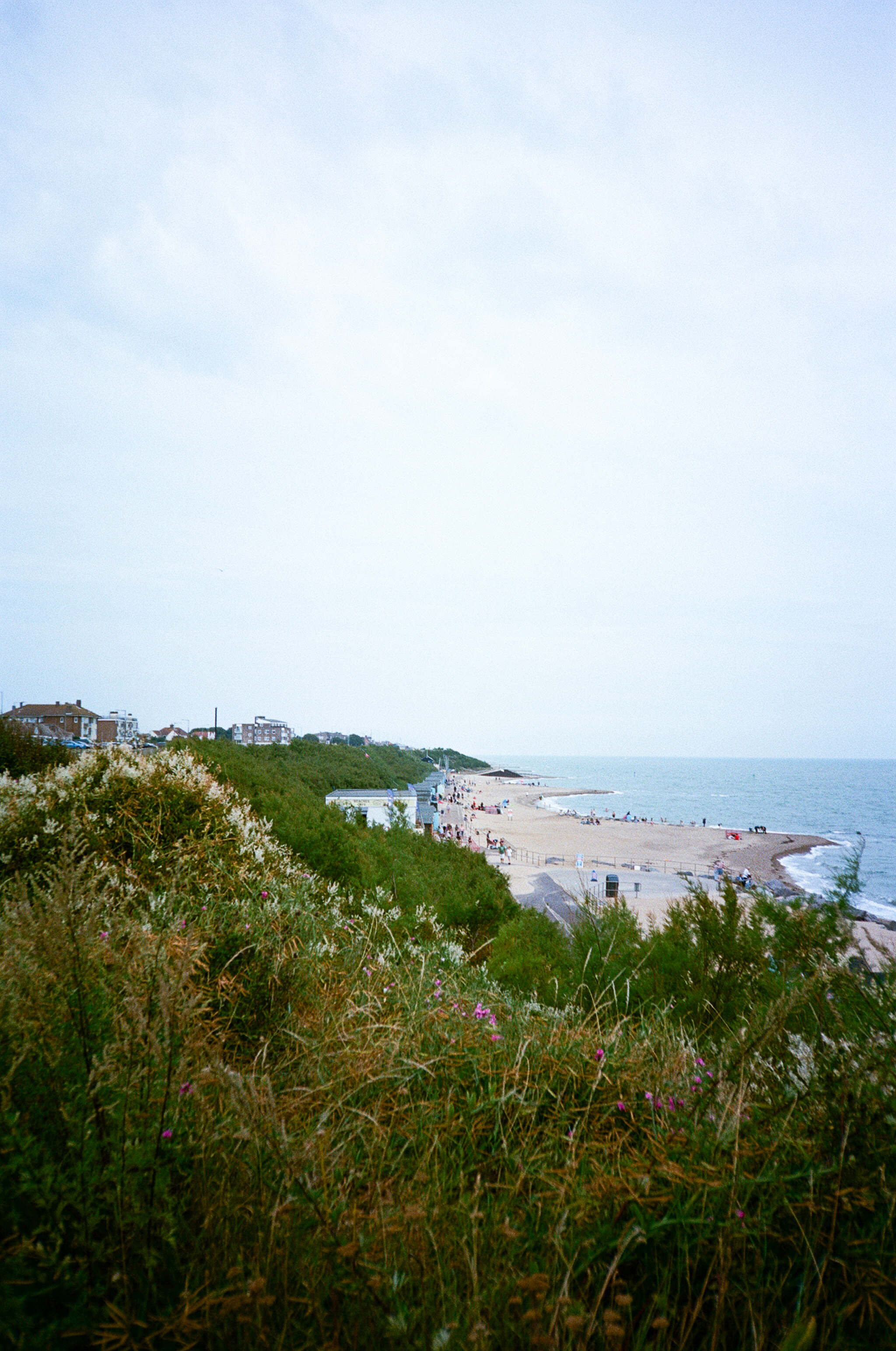Skimming

There was a family on the beach. Over the
concrete wall that bordered the long dusty promenade, sand stretched down
gradually to the tide withdrawn. There were strips of stones, pebbles, seaweed,
gravel; each separated from the surf by the moon and dried by the sun. The air
was so still that not even the grass shivered. Not a breeze ran along the coast
and the heat from the sun was overbearing, the air sticky and moist. In the
distance, the pier stood high on skinny legs beneath a pale haze, its ride attractions
dormant for lockdown, their silhouettes silent, dim and jagged. Farther out to
sea, the horizon disappeared and with it all the hundreds of windmills, waving
and fading. Along the rim, white lips kissed the shore and hushed over the
sand. It was the middle of spring. There was a family on the beach.
Husband, wife, two kids; older son, younger daughter. Apart from them the beach was empty. The children stood down near the water with their father, and skimmed pebbles. Each child would take it in turns and, crouching down, skim a flattened pebble back into the sea, for it to be smoothed once more. The father would show them how to skim – one, two, three, four, five bounces along the surface of the water. They were probably in the middle of a Saturday afternoon walk and had been sidetracked by the invitation of skimming. Slowly the children learned to skim, and although not every attempt was successful – anything more than two bounces – they had only to perfect the knack for it, the search for a skimmable pebble, the correct way to hold it. The daughter got seven bounces and high-fived her father, before excitably putting her eyes to the ground in search of more skimmable pebbles, the perfect pebble for skimming.
Husband, wife, two kids; older son, younger daughter. Apart from them the beach was empty. The children stood down near the water with their father, and skimmed pebbles. Each child would take it in turns and, crouching down, skim a flattened pebble back into the sea, for it to be smoothed once more. The father would show them how to skim – one, two, three, four, five bounces along the surface of the water. They were probably in the middle of a Saturday afternoon walk and had been sidetracked by the invitation of skimming. Slowly the children learned to skim, and although not every attempt was successful – anything more than two bounces – they had only to perfect the knack for it, the search for a skimmable pebble, the correct way to hold it. The daughter got seven bounces and high-fived her father, before excitably putting her eyes to the ground in search of more skimmable pebbles, the perfect pebble for skimming.
Far from the three of them, the mother stood.
She observed but did not interact, nor did she appear to want to. She was
content to stand up the beach, above all the rings of gravel, seaweed and fish
eggs washed ashore. Her heels were together in the sand and her arms crossed.
Her tied hair was the colour of the sand, her jeans of the sea, her skin the
colour of the sun. She stood watching her family and did not move. The sound of
the three of them playing made it to her ears but was not really perceived any
more than the relentless sound of the sea. After a moment of staring, her eyes
would drift to the rocks. She could smell the salt on the rocks, smell the life
and algae. She looked through the rocks and out to sea. Her eyes watered from
not blinking, so she wiped them and looked down, away from the sun but it was
reflected off the sand. Next to her sandal’d toes was an unremarkable stone,
unfit for skimming and pointed enough to pain a nude foot. She bent down,
concertedly keeping her heels together, feeling the muscles of her legs
stretching. She was still young, still lithe. The father and children cheered
in the distance. She picked up the stone in her fingers and stood erect. It was
truly an unremarkable stone, unfit for skimming and pointed enough for her to
pain herself when she clutched it in her fist. Her knuckles went white around
it. The stone had never been smoothed by the sea, had not been washed against
the sand or smashed against the rocks. She opened her clenched fist and saw
that her hand had not smoothed it either. The stone was unfit for skimming. In
the lines of her palm was sand and blood-rushed skin around the stone. She
regarded it closely, then, looking up, threw it fiercely. Depending on the
angle of the onlooker, it would appear she threw it at her husband and
children, a charge she might deny, perhaps object to, but that was where the
stone went. It was not on target, however, and landed at the edge of the sea, a
few yards from where they stood.
The three of them didn’t notice. They carried on skimming and laughing at nothing.
With effort she moved from her spot and felt the sand wrap around her feet, make its way under her painted nails and feel warm. She walked down the beach, towards her husband and two kids; older son, younger daughter.
The three of them didn’t notice. They carried on skimming and laughing at nothing.
With effort she moved from her spot and felt the sand wrap around her feet, make its way under her painted nails and feel warm. She walked down the beach, towards her husband and two kids; older son, younger daughter.